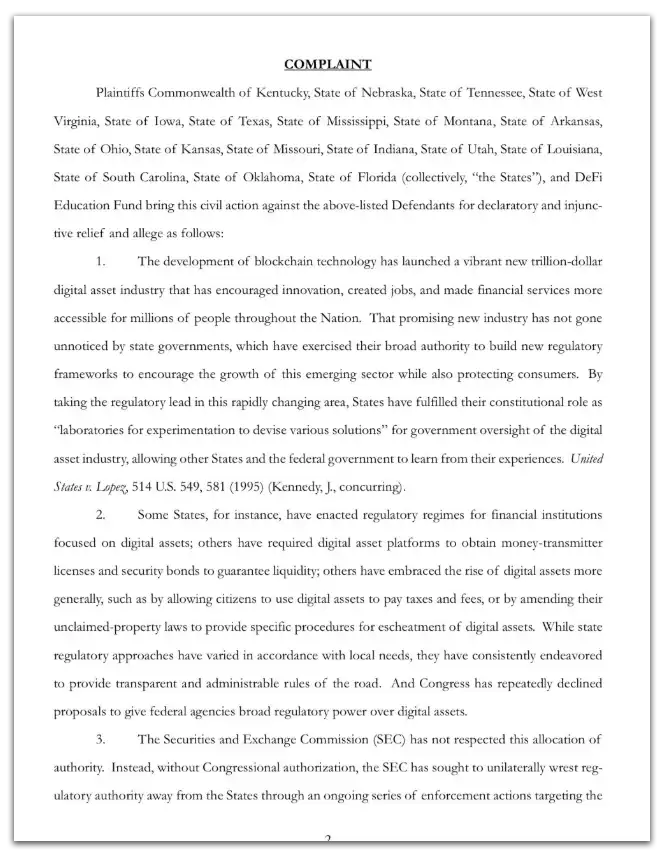Eighteen US states have joined forces in a bold lawsuit against the SEC. They want to challenge what they see as federal dominance in crypto regulation. The lawsuit is being led by Kentucky Attorney General Russell Coleman. The group includes AGs such as Ashley Moody of Florida, Ken Paxton of Texas and Jonathan Skrmetti of Tennessee. Together, they are calling out the SEC for enforcing unclear crypto regulations that, in their view, infringe on states’ rights. But why such a major setback? Let’s dive into the crypto vs. SEC case and see what’s really at stake.
States claim the SEC is going too far
The attorneys general from these states claim that SEC Chairman Gary Gensler is trying to seize too much control. Gensler has said that most cryptocurrencies, except big names like bitcoin and ether, should count as securities. Because of this stance, the SEC is going after major crypto companies like Coinbase and Ripple. They argue that these companies should have registered their assets. But the states see it differently. They say the SEC’s actions are pushing the boundaries. They believe the SEC is even ignoring what Congress originally intended by crypto oversight. This, they argue, causes confusion and potential damage to a fast-growing industry.

The AGs believe that crypto regulation should remain primarily at the state level. This will help tailor them to local needs. With digital assets still evolving, these states believe federal interference could disrupt innovation and business growth.
Political and industrial support
This isn’t just about the states; there is also political support. Key figures such as Senator Bill Hagerty of Tennessee have spoken out against what they call the SEC’s “anti-crypto agenda.” This court case actually corresponds to the recent promises of newly elected President Donald Trump. He has vowed to support the crypto industry by limiting federal oversight. For many in the crypto world, this lawsuit is an opportunity to take a stand against what they see as excessive regulation.
Industry advocates, along with AGs like Theodore E. Rokita of Indiana, Lynn Fitch of Mississippi, and Andrew Bailey of Missouri, support the idea that states are better positioned to create practical crypto regulations. This lawsuit reflects a larger movement aimed at shifting regulatory power from federal to state hands.
Former US Senate candidate John E. Deaton shared his proud moment of suing the SEC on January 1, 2021, nine days after they filed the case against XRP.
What to expect
This case could mean major changes for the US crypto industry. With Republicans in key positions and potential leadership changes at the SEC, we could see more crypto-friendly regulation with an emphasis on states’ rights. If the plaintiffs win, states like Oklahoma (AG Gentner Drummond) and Iowa (AG Brenna Bird) could soon gain more control over crypto policy. SEC has been dragging out the Ripple lawsuit for years and even after a clear ruling from Judge Torres, they are not stopping. It would be very interesting for the crypto community to see how this Crypto vs. SEC case filed by AGs unfolds. This ruling could redefine the way digital assets are managed, potentially opening doors to clearer, more innovation-friendly rules.












